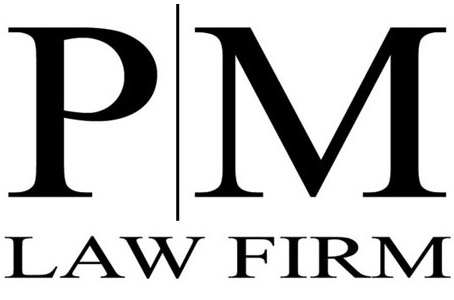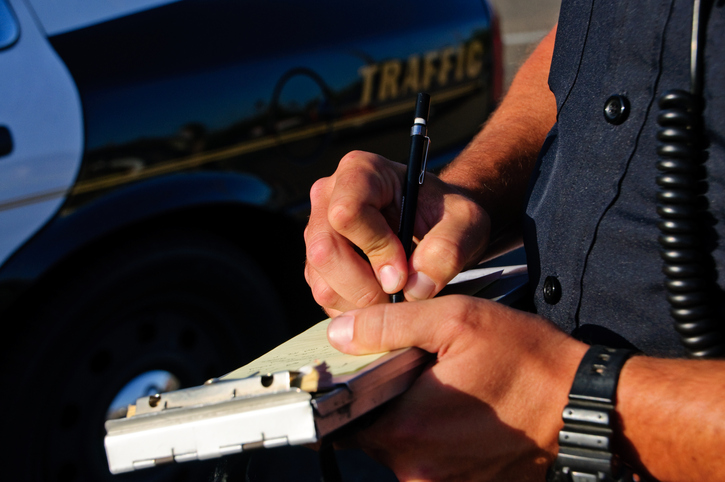It’s normal to feel stressed and overwhelmed after car accidents, but the steps you take immediately after the event can make a significant difference in the case’s outcome. One of the most important conversations you’ll have following a crash is with the police officer who arrives on the scene and writes the report. This will become an official record of the accident, so what you say or don’t say matters.
Although you may not have to contact the police after a minor collision, filing a report is typically a wise idea for insurance and legal purposes. After a severe accident, the police will respond to the scene and talk to you, the other drivers involved, and any witnesses who saw the crash. To be sure that you’re protected after your accident, you should know when to call the police, what questions to expect, and how to talk to the officer.
When to Call the Police After Car Accidents
Different states have different laws regarding when to call the police after car accidents. In most states, the law requires you to contact the police if injuries or damage to the vehicle are at or above a specific dollar amount. If the accident was minor and no one was hurt, you might not have to call the cops.
However, contacting the police is generally a good idea if you’ve been involved in a crash. Even if you were at fault for the accident, having an official record of the event will be helpful when you file your insurance claim. It’s crucial to talk to the police if you weren’t at fault. You should have as many details about the crash on record as possible to prove your innocence.
Immediately after a collision, you should make sure that you and the other drivers and passengers involved are unhurt. If anyone is injured, call for emergency assistance. If you can, move to a safe location away from other traffic and dial the police. Carr accidents are traumatic experiences, and as time goes on, the event’s details may become unclear. The sooner you tell your story to the cops, the more accurate the report.
What the Police Will Ask
The cops have a few critical tasks when they respond to car accidents. First, they’ll make sure everyone is safe and uninjured. If necessary, they’ll direct traffic around the scene of the crash until they and the other emergency responders can clean up the scene and get everyone to safety.
Their other job is to get an account of the accident from the drivers involved and any witnesses present for the crash. If possible, they’ll speak to everyone involved while responding to the scene. If someone needs emergency medical assistance, the cops may talk to them later to hear their report. Their goal is to get a clear, detailed, and accurate an account as possible.
You can expect the police to ask for the following information:
- Time of the accident
- What do you remember happening before and during the crash
- Description of the road and any environmental hazards that may have contributed to the accident
- Injuries
- Damage to your vehicle
- Your contact information
If other specific factors may be related to the accident, the cops will also inquire about those. They’ll take pictures of your vehicle and the scene of the crash, and they’ll draw a diagram that depicts the accident.
How to Talk to the Police After Car Accidents
It’s normal to feel nervous when talking to the cops after a car accident. Regardless of whether or not you were at fault for the crash, you might worry that you’ll say something that makes you look guilty. The police need your honest account of the collision, and you shouldn’t lie or intentionally omit information. However, it would help if you were careful in approaching the conversation. Unfortunately, misspeaking could create problems for you if you plan to file an insurance claim or pursue legal action.
Here are a few helpful tips for talking to the cops after car accidents:
Stick to the facts
Emotions tend to be high after a collision. You’re startled, scared, and overwhelmed, and you’re probably focused more on how you feel than on what objectively happened. Sticking to the facts is critical when speaking with the police, however. Try to recount what you saw and experienced during the collision without letting emotions rule the conversation. This will help keep your story focused and consistent.
You also should avoid speculating when you make your report. While you probably have ideas about the other driver’s behavior or possible conditions that led to the crash, don’t report these speculations as facts. Carr accidents happen so quickly and suddenly that it’s usually impossible to recognize every single detail. If you’re not entirely sure that something happened, don’t mention it to the cops. Stick to what you saw, and trust that the police will put the whole story together.
Keep calm
Keeping a cool head is the best thing to do when talking to the police after an accident. Not only will this make your report as precise and accurate as possible, but it will also help you avoid sharing incriminating information.
Before the police talk to you, try to take a few deep breaths. You’ll probably feel anxious and shaken up from the crash, but giving yourself a moment to calm down and clear your head will make a big difference in your ability to converse with the cops.
Don’t incriminate yourself
This may seem like obvious advice, but people often reveal incriminating details when talking to the cops because they feel shaken up by accident. Don’t apologize for your role in the crash, and don’t admit to doing something negligent.
If you were at fault for the collision, seeking legal support maybe your best option. You can decline to answer questions without an attorney present if you’re concerned that talking to the police will be detrimental to your case. Even if you weren’t at fault for the crash, you don’t have to answer questions if you get the impression that the police are trying to find incriminating details.
Get a copy of the police report.
Whenever you file a police report, you should always obtain a copy. Call or stop by the police station a few days after the crash to get a copy of the report and read through it carefully. This is the official account of what happened, and you need to make sure all of the details are correct. If anything is incorrect or incomplete, you can contact the police officer who wrote the report and ask them to amend it.
Police reports aren’t admissible in court, so the report probably won’t be of much help if you’re pursuing a legal case to receive compensation for your injuries. However, your insurance company can use the report to understand the accident better and determine the settlement.
What to Do if You Can’t File a Report on the Scene
You might not speak to the police right after a minor collision. If you needed emergency medical care following an accident, you also might not have been able to talk to the cops. In either of these situations, it may be wise to reach out to the police later to file a report.
Before you talk to the police:
- Gather as much information about the accident as possible.
- If you took photos at the crash scene, show them to the office as proof of the damage to your vehicle. If the accident happened close to a business, you could contact the business to see if they have surveillance footage of the collision.
- Write down everything you remember about the crash so that you don’t leave anything out of your report.
How an Attorney Can Help
Working with an attorney after a car accident is essential in several circumstances. Having legal representation is critical if you were at fault for the crash. The other driver may let their insurance company handle the situation, but there’s always a possibility that they’ll pursue legal action. You need an experienced car accident attorney who can help you navigate the situation. They’ll be present when you report to the police, and they’ll advise you on what to say and what not to say.
A lawyer can also help if you’re wrongfully found at fault for a collision. Unfortunately, the details of a car accident may not always be precise, and the police may have to listen to your word versus the other driver’s. If you believe that the police misunderstood your statement or wrote an inaccurate report, you should contact a car accidents attorney as soon as possible.
Talking to the cops is a stressful but necessary step after car accidents. The police report can either clear your name or incriminate you, so you should always approach the conversation with caution. Be honest and focused in your report, and remember that you’re not obligated to answer the officer’s questions if it’s not in your best interest. If you have any concerns about a collision, you were involved in, consult with an experienced car accident attorney on the matter.

